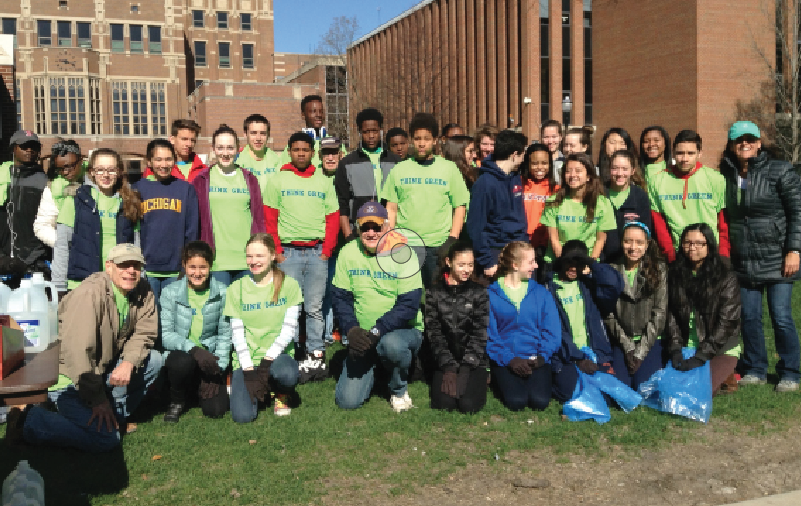Green Team to make big changes
September 16, 2016
In the midst of homework and tests, “going green” is the least of our worries, but rising environmental issues show how important it really is.
“I think the environment is one of the most pressing issues,” Green Team Co President, Senior Judith Roeder says. “People turn a blind eye to it, especially teens around our age, but it’s important to get involved and take action.”
The Green Team is a club that focuses on environmental sustainability, both inside and outside of ETHS. Though the club started over 20 years ago, they are planning on making big changes for this year.
“Going forward, now that Judith and I are running the club, we want to have a bigger impact on the school’s sustainability,” Co President Senior Ilana Baker explains.
This year, the Green Team is going to have guest speakers come in and further the discussion on the environment. They are looking to speak with people that are helping the environment locally.
Additionally, they plan on encouraging the administration to make more eco-friendly changes within the school. The Green Team plans to meet with Associate Principal Robert Brown to discuss possible changes.
Already, they were able to get the administration to implement blue reusable trays into every cafeteria, so that an excessive use of styrofoam is not needed.
This year will be different for the Green Team, since they plan on doing more for the school and the environment. “The involvement of the club has gone down over the past few years, but we have many ideas on how to turn that around.” Sponsor Joel Weiner says.
They will be spreading awareness on environmental issues through The Green Minute, which is a collection of information sheets, that will be hung around the school. Also, they will be supporting the city council in protecting bike lanes throughout Evanston.
They want to inform students on how little changes in their life can drastically help the environment. “ETHS is such a big school, it’s important to ensure that all of the wonderful things we are doing aren’t harming the environment,” Baker says.
According to Population Education, small steps that students can take to help the environment include reducing meat intake, using more reusable containers and bottles, and powering down any electronic device after using it. Actions that don’t seem that demanding can positively impact our earth in the long run.
“We are all part of the problem,” Baker states, “The question is; are we going to be part of the solution?”
To learn more about environmental sustainability, visit www.climate.nasa.gov.










